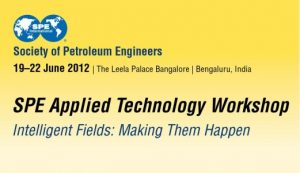 Intelligent fields are a reality. The technologies are available today; unit costs have fallen relative to overall development costs; reliability and durability have improved enabling capture of more of the benefits, so why haven’t intelligent fields taken off and become the norm? The reasons have less to do with the technology per se, and more to do with the complexity of the organisational footprint and stakeholder relationships required to implement, operate, and continuously improve the performance of intelligent fields.
Intelligent fields are a reality. The technologies are available today; unit costs have fallen relative to overall development costs; reliability and durability have improved enabling capture of more of the benefits, so why haven’t intelligent fields taken off and become the norm? The reasons have less to do with the technology per se, and more to do with the complexity of the organisational footprint and stakeholder relationships required to implement, operate, and continuously improve the performance of intelligent fields.
The technologies, particularly the well technologies, used for most of the early implementations were suitable only for new wells, limiting their application to green fields or relatively limited “new” extensions of existing brown field developments. More recently, technologies that can be retrofitted to existing wells are widening the scope, but application later in the life of a field, particularly once it is declining, offers reduced benefits. Hence the opportunities for intelligent field developments remain somewhat limited.
New skill sets are required to deliver the necessary integration. Whilst some of the larger operators have many of these skills already in-house, and some of the E&P service providers are moving into this space, there is a new breed of systems integrators growing out of the IT service companies into the E&P domain. In the downstream sector, “intelligent” refineries are the norm, and there is much to be learnt from their success, not least in terms of their organisation and staffing models. New players, new ways of working, and new contracting models all play a role in slowing uptake.
This workshop will bring together operators, technology (service) providers, and systems integrators to share their experiences and distill the key learnings and critical success factors needed to make intelligent fields happen.
